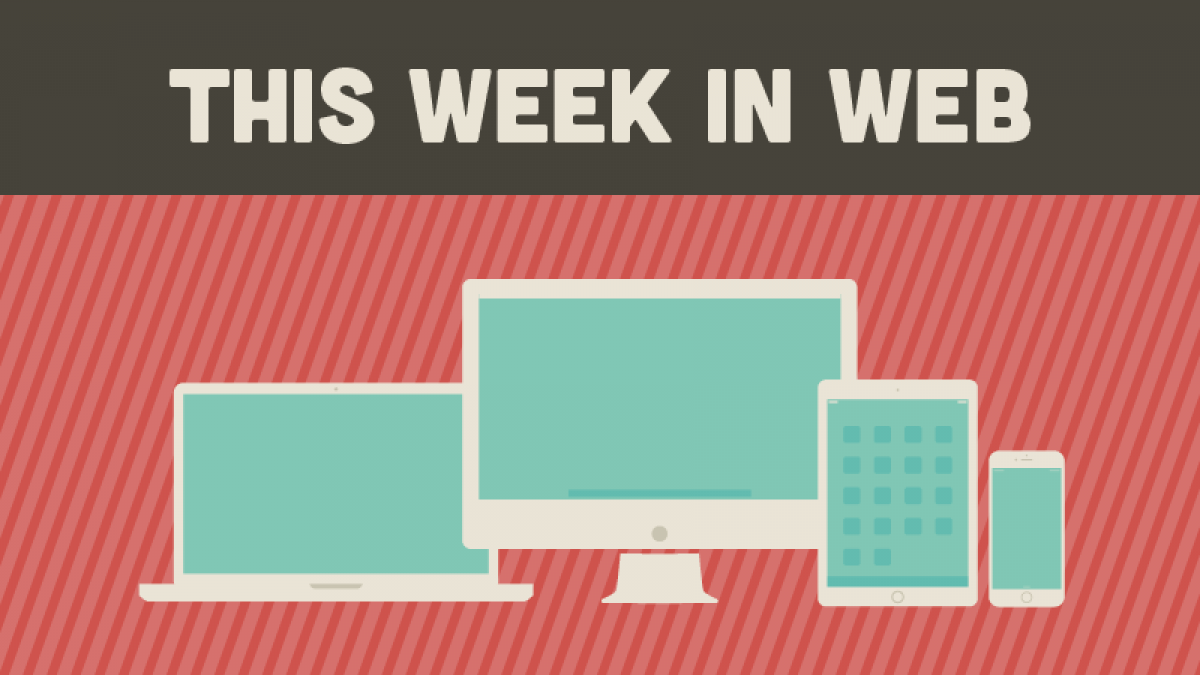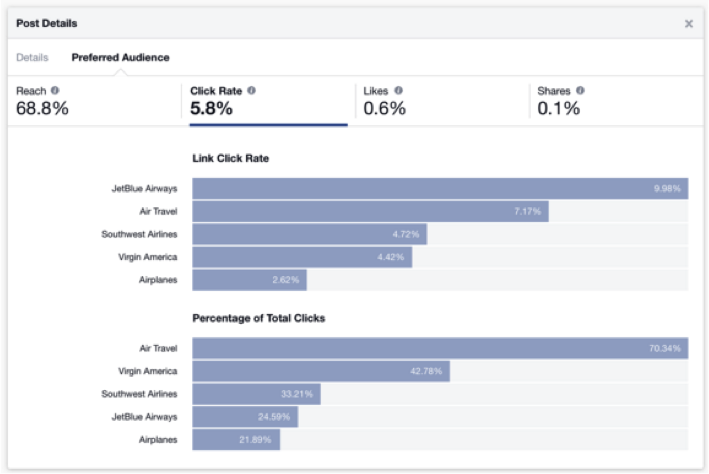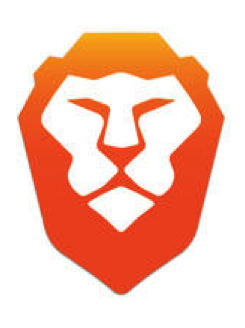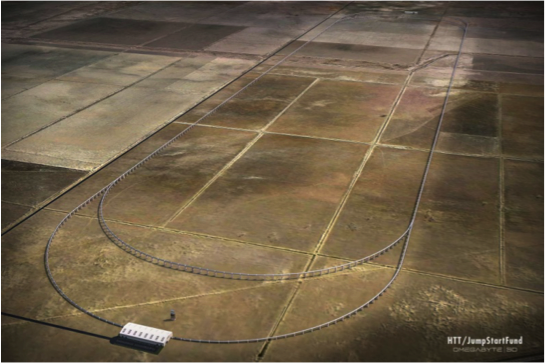
This Week in Web: January 18-24, 2016
This week in tech news, we first take a look at Facebook’s efforts to help publishers hit their target. We celebrate 15 years of successful evolution for content management framework Drupal. And, your internet-connected devices can soon do their shopping without you. There is a new browser Brave enough to attempt survival without spying on us or advertising. For now. Also, with Microsoft’s new alarm clock app, you may not go back to sleep until you repeat a tongue twister or communicate your annoyance with facial expression. Last, the Hyperloop is coming!

Targeting tools
With the continuously swelling sea of content, it has become more challenging for publishers to reach their target audience. This week, Facebook launched new ‘Audience Optimization’ tools to help publishers reach and engage with users to whom the posts are most relevant. The new features enable publishers to add interest tags to their posts to prioritize who sees them, as well as the option to restrict who sees a post based on location, language, age, or gender. ‘Audience Insights’ provides engagement metrics to show publishers how the post performed, broken down by the designated interest tags. Three publishers who tested the feature reported significantly increased engagement. ‘Audience Optimization’ replaces ‘Interest Targeting,’ and is automatically enabled for Pages with over 5,000 likes.
Happy Birthday, Drupal!
Drupal was born December 29, 2000, and has grown-up to be a leader in content management. This week, founder Dries Buytaert celebrated his brainchild’s 15th birthday by reminiscing about its high and low points, and discussing his hopes for its future. The highlights:
- Drupal has been around since only 7% of the world had internet access. Text messaging, Google, and Wikipedia were in their infancy. Facebook and Twitter did not even exist yet. Drupal is continuously adapting and innovating survivor.
- Major Drupal successes that helped drive the industry have included the invention of ‘hooks’ and ‘modules,’ and maintaining the use of ‘nodes’ rather than ‘pages.’
- Efforts that were not successful included supporting OpenID, not giving enough attention to end-user usability, and hesitating on JavaScript for too long.
- Future development should focus on protecting people’s privacy, making Drupal approachable and easy to use, and scaling it to meet growing needs.
- The innovative spirit of the Drupal community is keeping it relevant with a bright future, as Buytaert plans to continue to guide Drupal to reach new heights.
Auto-shopping
Remember those silly Amazon Dash buttons? The next evolution of the Dash Replenishment program removes humans from the equation. The technology is being built-in to some devices, such as some models of Brother printers that will order their own ink, GE Smart Dispense Washers that will order their own detergent, and Brita water pitchers that will order their own filters. "Customers don't have to do anything -- they can simply rely on the connected device to automatically reorder the consumables that keep their homes running smoothly," stated Peter Larsen, VP of Amazon Devices. The convenience to customers, and many benefits to Amazon and device-making companies are clear. However, some people are skeptical, citing the potential for malfunctions and security hacks, and the customers’ loss of control over their spending decisions. Do you trust your vacuum cleaner to reorder its own bags and filters when it feels dirty? Do you trust Amazon to maintain a competitive price for replenish-able items?

A Brave New Browser
There is a new browser that promises to “block all the greed and ugliness on the Web that slows you down and invades your privacy.” Brave Software, started by Brendan Eich, who was previously a bigwig at Mozilla and an inventor of JavaScript, released a test version of the Brave browser this week. It is supposed to run 2 to 4 times faster than other smartphone browsers, and 1.4 times faster than other desktop browsers, by stripping out the harmful elements of online advertising, such as behavior trackers used to collect users’ personal information for ad targeting. At this time, the Brave browser leaves empty spaces where the ads would normally be. However, if enough people make the switch to Brave, the ad-space will be replaced with… ads. Brave plans to incorporate advertising that is useful to users, based only on general inferences from their browsing history, but does not invade their privacy. The open-source test version is available on GitHub for Windows, Android, Apple OS X and iOS.
Snooze bar defense
You are in a peaceful, snuggly slumber, and you hear the unwelcome beep beep beep of your morning alarm. You roll over and swipe your finger across the screen to silence it. Not good enough… Microsoft’s new Mimicker Alarm clock app wants you to prove that you are actually awake. Within 30 seconds of dismissing the alarm, Mimicker requires you to wake-up enough to complete one of three games. You may have to take a selfie expressing an assigned emotion, take a picture of an object that matches a particular color, or repeat a tongue twister. If you do not, then Mimicker thinks you dozed off, and starts beeping at you again. This sounds like a fun (or completely annoying) way to wake-up, and also sounds effective. More importantly, it showcases Microsoft’s artificial intelligence Motion, Speech, and Computer Vision API’s, and images and audio that you upload are shared with Microsoft’s Project Oxford to support further development. Mimicker is available on Android only.

Faster than a speeding bullet?
Wish you could commute hundreds of miles in under an hour? This week’s ground-breaking on a 5-mile Hyperloop test track in Quay Valley, California, makes that wish one step closer to reality. The Hyperloop, another of Elon Musk’s futuristic projects, is a vacuum tube proposed to move passengers between major cities at approximately 800 miles per hour. (That is faster than the speed of sound, but way slower than a speeding bullet, by the way.) It is currently self-funded and “volunteer” scientists and engineers have been paid in equity to work on plans. The company claims that construction costs for the Hyperloop would be less than any proposed railway projects. If all goes well, the test track should be ready for passengers by 2018, and will eventually be expanded to become a route connecting San Francisco and Los Angeles.
What was the most interesting tech news that you read on the Web this week? Will you let your dog’s bowl track and order its own kibble? Can ad ad-free browser compete with the veterans + ad-blocking plug-ins? Tell us what you think!

